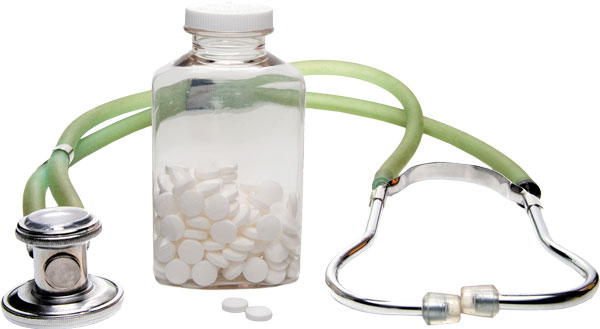This old standby may not be your first choice for pain relief, but it still has an important role in disease prevention and first aid.

Image: Thinkstock
We have a lot to thank aspirin for. It’s cheap and plentiful. It does a good job of relieving pain and bringing down fevers. It has also been shown to reduce the risk of heart attack, stroke, and colon cancer. It can even stop heart attacks and strokes in their tracks. In fact, if you’re in your 50s or 60s, you may want to think about taking a low-dose aspirin every day.
After evaluating the results of scores of studies, in April 2016 the U.S. Preventive Services Task Force (USPSTF) recommended that women and men ages 50 through 69 who have a 10% risk of a heart attack or stroke in the next 10 years take 81 milligrams (mg) of aspirin daily. Under the previous recommendations—which, were different for men and women—daily low-dose aspirin was advised for women ages 60 through 79 who were at increased risk for cardiovascular events. The recommendation was revised to reflect a new method of calculating the risk of heart attack and stroke and of increased risk of bleeding in older people.
Why aspirin works
Dr. Tanya Laidlaw, assistant professor of medicine at Harvard Medical School, suggests one way aspirin may work to ward off cardiovascular events: “We think that one of the reasons that taking an aspirin daily protects you is because it decreases platelet reactivity.” Aspirin inhibits cyclooxygenase-1 (COX-1), an enzyme required to manufacture thromboxane—a chemical that encourages platelets to clump together to form blood clots. Heart attacks and strokes are commonly the result of clots that block blood flow in narrowed arteries of the heart or brain.
Dr. Laidlaw notes that higher doses of aspirin also inhibit a related enzyme, cyclooxygenase-2 (COX-2). Both COX-1 and COX-2 are pivotal in the production of prostaglandins, which promote inflammation, a key player in both cardiovascular disease and colon cancer.
What to consider before you start taking a daily aspirin
There are a few reasons why you may not want to take a daily aspirin. Three of the most important follow.
- Your risk of heart disease and stroke is low. You can learn your risk using the calculator developed by the American College of Cardiology and the American Heart Association posted on the website, www.cvriskcalculator.com. The USPSTF used the calculator in developing the recommendation. If you aren’t likely to benefit from aspirin, the calculator will let you know. However, you should double-check the results with your doctor.
- You have an increased risk of bleeding. If you’ve had gastrointestinal upsets from taking aspirin or other nonsteroidal anti-inflammatory drugs (NSAIDs) like naproxen (Aleve) or ibuprofen (Advil, Motrin) or if you bleed for a long time after a cut or scrape, talk to your doctor.
- You are sensitive to aspirin. Aspirin-exacerbated respiratory disease (also known as AERD) is a chronic medical condition that consists of asthma, recurrent sinus disease with nasal polyps, and sensitivity to aspirin and other NSAIDs. Approximately 10% of all adults with asthma and 40% of people with asthma and nasal polyps are sensitive to aspirin and NSAIDs, and the problem is more common in women than in men. “If you’ve had a reaction to another NSAID, you should talk with your doctor before taking aspirin for any reason,” Dr. Laidlaw advises.
Aspirin as first aidEven if you don’t take aspirin, you should have a bottle of uncoated 325-mg pills in your medicine chest as emergency therapy if you or anyone in your home has symptoms of heart attack or stroke. Call 000 first. Then chew one aspirin tablet—or four low-dose aspirins—thoroughly before swallowing. A chewed aspirin lowers thromboxane levels three times faster than one that is swallowed whole. Although aspirin may help to break up blood clots obstructing your vessels, you’ll need additional therapy, some of which can be administered by emergency medical technicians (EMTs) while you’re en route to the hospital. That’s why the phone call to 000 is so important. You’ll want the EMTs at your door as soon as possible. |
Some more studies proving how asprin can be of benefit in a first aid kit and reduce the sudden impact of a heart attack or stroke. We will discuss the use of asprin in our first aid courses in Canberra. Please note the article has been changed to suit Australian emergency numbers.
